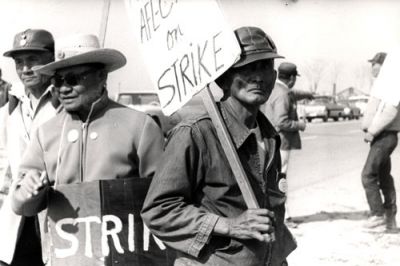Environmental Law and the Two-Year Law Degree
There’s been talk recently about requiring lawyers to have only two years of law school, maybe with a follow-on year of apprenticeship. If this change takes place, will students still be able to study specialized courses like environmental law? For instance, to get an environmental law certificate at Berkeley, at student needs to take six courses in environmental law or related areas. What happens to specialized courses like these in a “two-year degree” world? Does environmental law disappear from law schools?
One likely result of a two-year program is that few students would have time to take classes outside of legal basics and their intended areas of practice. So courses inenvironmental law, international law, and civil rights would be limited to students who expect to practice in those areas, as opposed to the larger groups of students who think these topics are interesting and socially relevant. But law firms, government agencies, and public interest groups are not going to want to undertake basic education in areas like these, so law schools will have a niche for teaching these courses. How could schools teach at least the basics of specialized areas in a world with a two-year law degree?
There seem to be three options:
Early specialization. GIven only two years, students might specialize much earlier, with fewer general courses such as torts, contracts, evidence, and criminal procedure except for students who want to specialize in those areas. (By analogy, if we cut off the final year of college, we’d probably want students to decide on their majors a year earlier, which would mean cutting courses on more general topics.) For example, many lawyers don’t actually ever appear in court, students might choose to entirely skip courses like civil procedure, evidence, and federal jurisdiction. Beginning with the second semester of law school, students could start taking specialized courses with a few general courses to round out their portfolios. By the end of the second year, they would be taking only courses closely relating to their intended specialities. Or schools could go even further, like some engineering schools that require high school students to pick which area of engineering they want as a speciality before they’ve ever taken an engineering course. (Bizarre but true.) Similarly, we could require prospective students to apply to the corporate law program, or the environmental law program, rather than applying to the entire school. That would allow the maximum amount of tailoring of curriculum to specialties.
The Optional Third Year. A second option is to provide an optional third year to allow more specialization. Law schools might provide a three-year JD while providing another, JD-lite degree after two years. Or they might grant a JD after two years and then provide a graduate degree for students for students completing the extra year, just as they now provide graduate LL.M programs to foreign lawyers and U.S. law school graduates. In some cases, after an apprenticeship, graduates might come back to school for more specialized training rather moving straight into the graduate program. This approach essentially recreates the third year of the JD program, but under a different label. The difference is that the third year would be voluntary except to the degree that law firms demanded it for hiring (just as many companies prefer college graduates over people with two-year degrees from junior colleges). A different twist on the optional third year would be for law schools to convert their clinics into intensive, one-year apprenticeship programs for recent graduates.
On-Line, Weekend, or Night Classes. A third option is to provide more specialized education in modules rather than as part of a degree program. The exact format might be something like night school, with classes spread over significant time, or it might take the form of short, intense programs, or it might be offered on-line. Law schools don’t compete very effectively for the most specialized training, but they could probably outperform other vendors in offering the foundational courses on subjects like the pollution regulation, climate change policy, or water law.
I suspect we would see a combination of these options, along with some people forgoing formal training and hoping to pick up enough specialized knowledge on their own. Most of what I’ve said would apply equally to other areas of law such as securities law or IP. One way or another, the need to provide basic competence for specialists would probably be met. The loss would be a narrowing of horizons. The real disadvantage is that we would be squeezing out breadth and the opportunity to explore different areas of law and learn different ways of approaching problems. I’m not yet convinced that this is the best approach for dealing with the soaring cost of legal education or the need to make routine legal services more broadly and inexpensively available.







Reader Comments